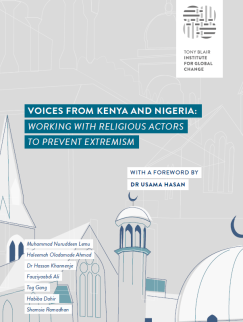The chapter Gender Equality and the Prevention of Violent Extremism in Kenya: The Role of Religious Leaders written by Fauziya Abdi Ali argues that the faith-based pillar of Kenya’s national strategy to counter violent extremism needs a gender sensitive approach, with religious leaders and faith-based institutions supporting and advocating for gender equality. This will in turn reduce the ability of violent extremist groups to capitalise on social and economic structures of gender inequality. Additionally, they find that women religious teachers have a crucial role in PCVE. However, there is a risk of instrumentalizing women religious teachers (as with other faith actors) as security agents. This risk is increased within communities that have a strong sense of patriarchy where women face higher risks of reprisal if they are perceived to be challenging gender norms and expectations by taking on public roles, such as by claiming positions of religious authority. Consequently, women religious leaders must be free to engage in PCVE efforts in self-determined ways, building on the context in which they operate. Their experiences and community knowledge must be acknowledged in PCVE design and implementation. The chapter also discusses the increased turn to online spaces to access information about religion, which presents new challenges for Kenya’s women religious teachers.
2020
